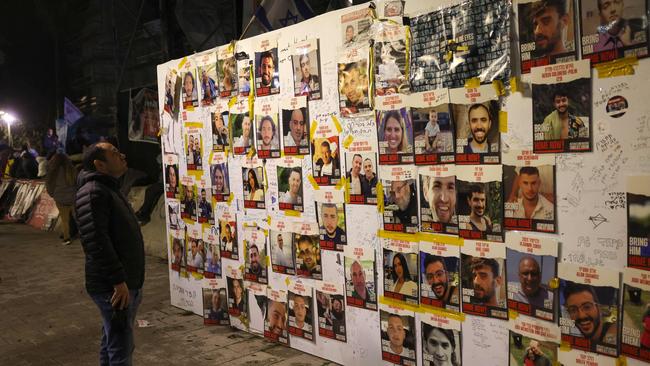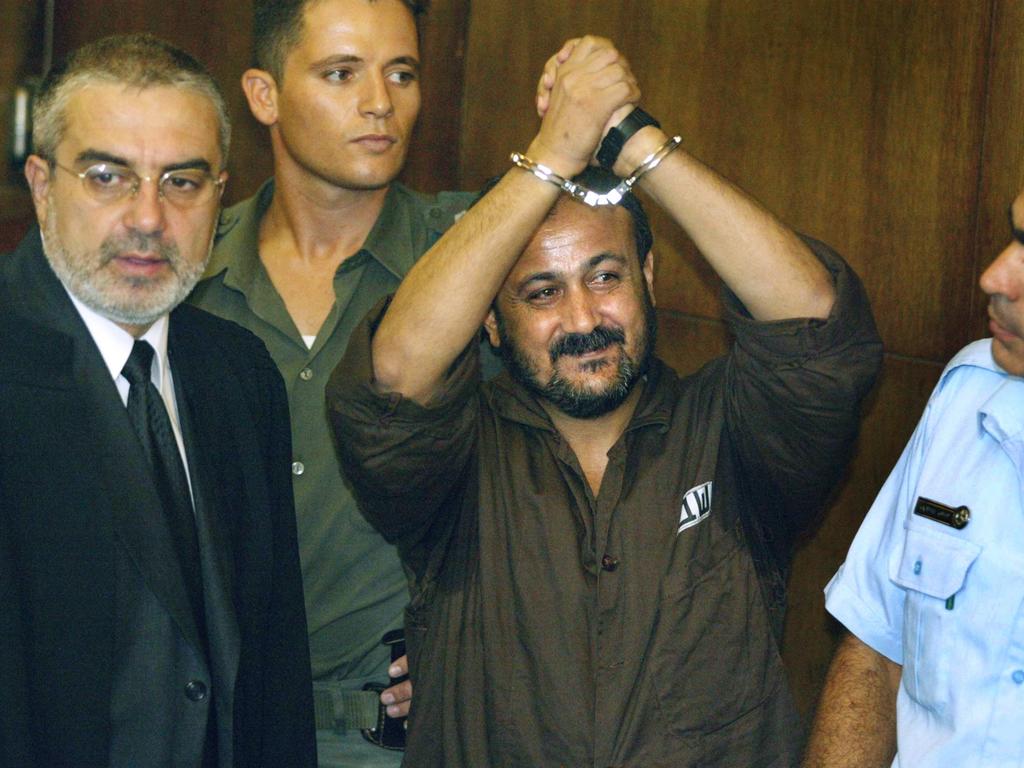Up to 50 hostages could be dead, Israelis admit
The number, considerably higher than the 29 deaths that Tel Aviv has publicly acknowledged, has been used in negotiations between Israel and Hamas.

As many as 50 hostages taken from Israel by Hamas on October 7 could be dead, a figure that is considerably higher than the 29 deaths that Tel Aviv has publicly acknowledged, according to an Israeli assessment shared with US and Egyptian officials.
The estimate was presented by Israel during negotiations in Cairo in recent weeks, according to Egyptian officials, and has played a key role in negotiations for the release of hostages – alive and dead – held in Gaza.
If the latest Israeli estimate is correct, it would mean that around 80 of the 132 hostages believed held by Hamas are still alive and that militants are holding on to dozens of bodies of people they kidnapped.
None of the dead has been returned so far.
Hamas militants and others from Gaza seized more than 240 hostages during their assault on southern Israel, which included terrorist attacks on a music festival and agricultural communities and left 1200 people dead.
The number of hostages alive and dead is central to talks brokered by the US, Egypt and Qatar, in which both would be returned in exchange for the release of Palestinian prisoners held by Israel.
It is also extremely politically sensitive in Israel, where the fate of the hostages has been central to public discourse. Families of hostages and others have pressed the government to do more to free the captives even if that impedes Israel’s fight against Hamas.
American and Israeli officials say a degree of uncertainty is baked into their estimates. US officials said Israel was assessing whether, as well as the 29 publicly acknowledged hostage deaths, around 20 others are dead. Separately, Israel has acknowledged that Hamas is holding the bodies of two Israeli soldiers killed in the 2014 Gaza war. Hamas has told negotiators it doesn’t know the exact number of dead hostages, the Egyptian officials said.
Since October 7, the militant group, designated as a terrorist organisation by the US and Australia, has at times said it couldn’t locate all the hostages, saying some were held by other militant groups or by private individuals who joined the attack.
Hamas has also said hostages had been killed in Israeli airstrikes, without presenting evidence, something Israel denies.
Israel’s military declined to answer questions for this article about the number of hostages it believes are still alive. “We notified all of the families of hostages that we received credible information indicating that their loved ones have been killed in captivity,” the military said.
A senior military official said: “You have to assume people are alive and try your best.”
US Secretary of State Antony Blinken arrived in Israel on Wednesday after visits to Saudi Arabia, Qatar and Egypt to advance hostage negotiations.
Under a draft agreement proposed by the US, Egypt and Qatar and given initial approval by Israel’s foreign intelligence service, Hamas would free civilian hostages first, leaving soldiers for later.
Hamas on Tuesday told negotiators it viewed the draft proposal “in a positive spirit” while reiterating the group’s call for a “comprehensive ceasefire”.
Mr Blinken said the US was reviewing Hamas’s response and would discuss it with Israeli officials. Qatar’s prime minister said the Hamas reply included “some comments”.
The main split between the two sides is over a ceasefire. Israel has said it is prepared to offer only a temporary ceasefire, Hamas is demanding an end to the war.
If the number of dead hostages is indeed higher than publicly disclosed by Israel, families of hostages could seek to raise the pressure on Prime Minister Benjamin Netanyahu. Relatives of those held say they fear more could be killed in the fighting or die of disease or neglect.
“We know that time isn’t running out. We are out of time,” said Dalia Cusnir, a 42-year-old educator whose two brothers-in-law are held by Hamas in Gaza.
Israel has tasked a committee of three medical experts with determining when a hostage can be officially declared dead.
It relies on classified intelligence, video footage and witness testimony.
The Wall Street Journal




To join the conversation, please log in. Don't have an account? Register
Join the conversation, you are commenting as Logout